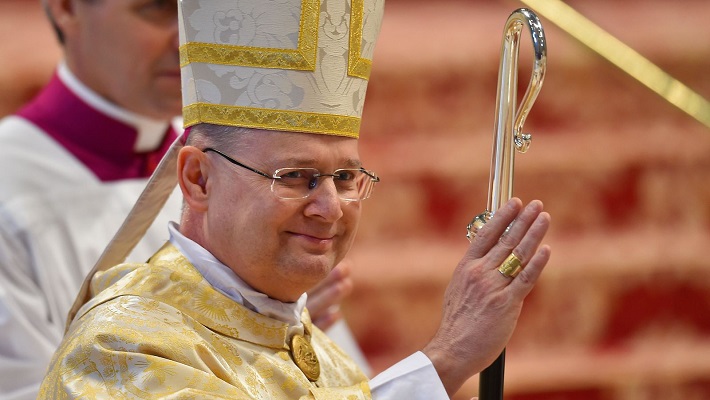By Arnold Neliba
CAPE TOWN, FEBRUARY 2, 2021 (CISA)-The Apostolic Nuncio to south Africa His Excellency Archbishop Peter Bryan Wells has asked bishops to play their universal role as bridge builders by reaching out to one another in creating opportunities for fruitful and engaging encounters.
While referring to the Popes encyclical Fratelli tutti the nuncio asked bishops to live their vocation by their closeness to the people.
“It is so easy for Church leaders today, like other leaders, to fall into the provincial, regional trap, seeing nothing beyond our own borders and our own community needs. This in many ways is one of the greatest challenges we are facing in a world which seems to be creating groups who are evermore protectionists, self-centered and isolated from the suffering of their neighbors next-door,” he said in his address on January 26 during the Southern African Catholic Bishops Conference Plenary meeting.
Archbishop Wells reminded bishops to be a sign of hope for the community and participate in a shared roadmap towards “common life that needs to be sought out and cultivated”, he referred to Frattelli Tutti.
“As bishops with a priestly hearts, we need to catalyse concrete pastoral and educational action in not only helping the faithful to look ahead in confidence, in trust, and in hope in God, but also to imbue them with a Christian spirit in carrying out their family, vocational and social duties and obligations. Any effort along those lines is a noble and worthy exercise in charity,” the nuncio added.
While calling for new language, new methods and new missionary experience, Archbishop Wells proposed “profound reconsideration to see whether they are effectively communicating the authentic Christian experience of the Church’s social teaching – with closeness, simplicity, warmth and transparency.”
Bishop Sipuka Sithembele in his opening remarks during the virtual plenary held that the coronavirus pandemic “is an invitation to reimagine the way of being Church, which is not happening for the first time.”
“The Schisms of the past in the early Church, the reformation of the middle ages and Vatican II changed the way of doing Church. For the reformation of the 16th century, the invitation for change was largely theological, focusing on matters related to Ecclesiology, Sacramentology, Justification and so on,” he said noting that the current reformation brought about various circumstances of life including Covid-19 pandemic is not a doctrinal one but a practical one. It is a reformation of practice, a reformation of relevance and a reformation of how practically do we become Church in these changed circumstances.”
The SACBC Virtual Plenary Session which was earlier scheduled to take placed from January 19 to 22 was rescheduled to run from January 26 to 29 due to the untimely death of Archbishop Abel Gabuza.
